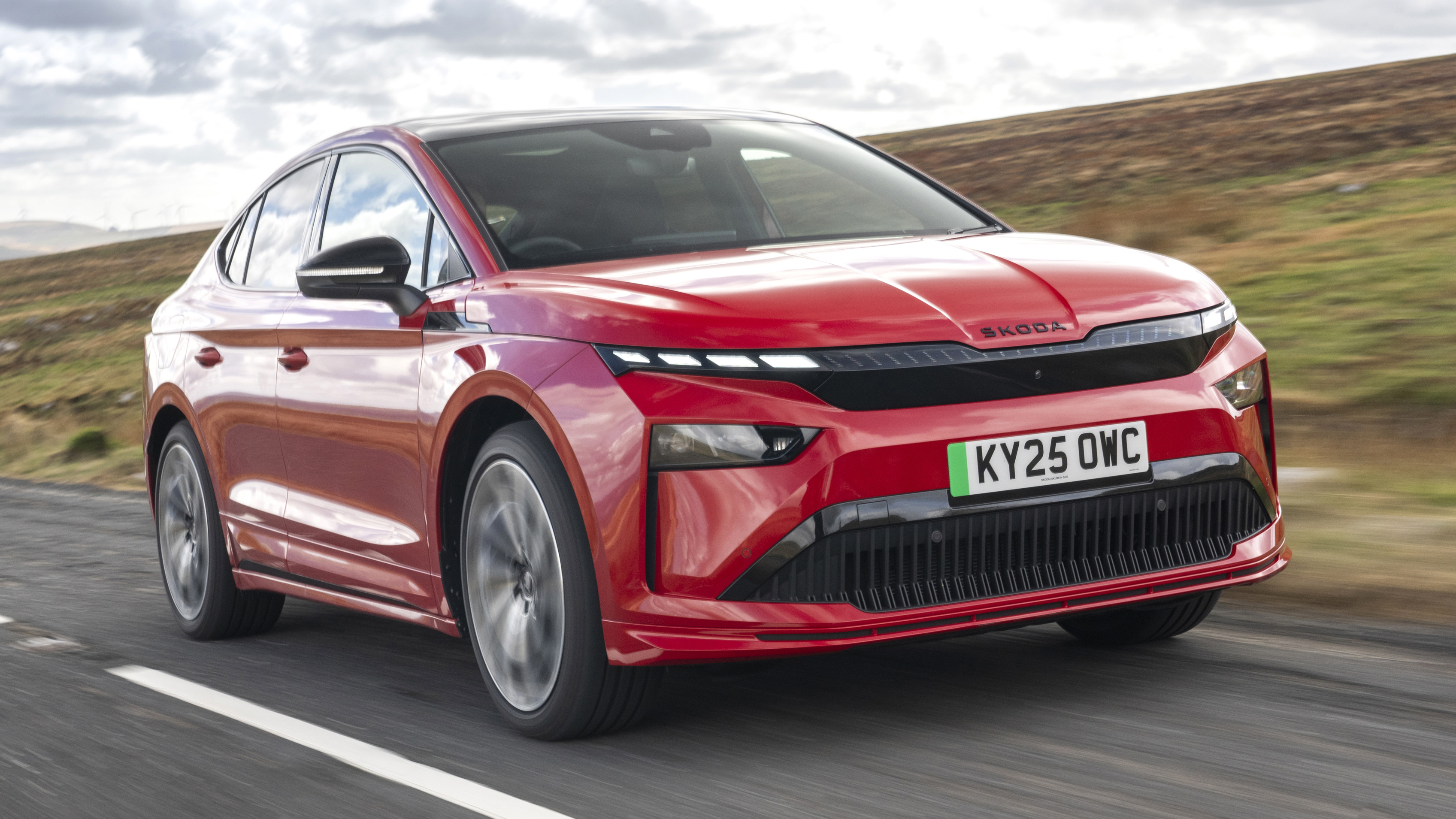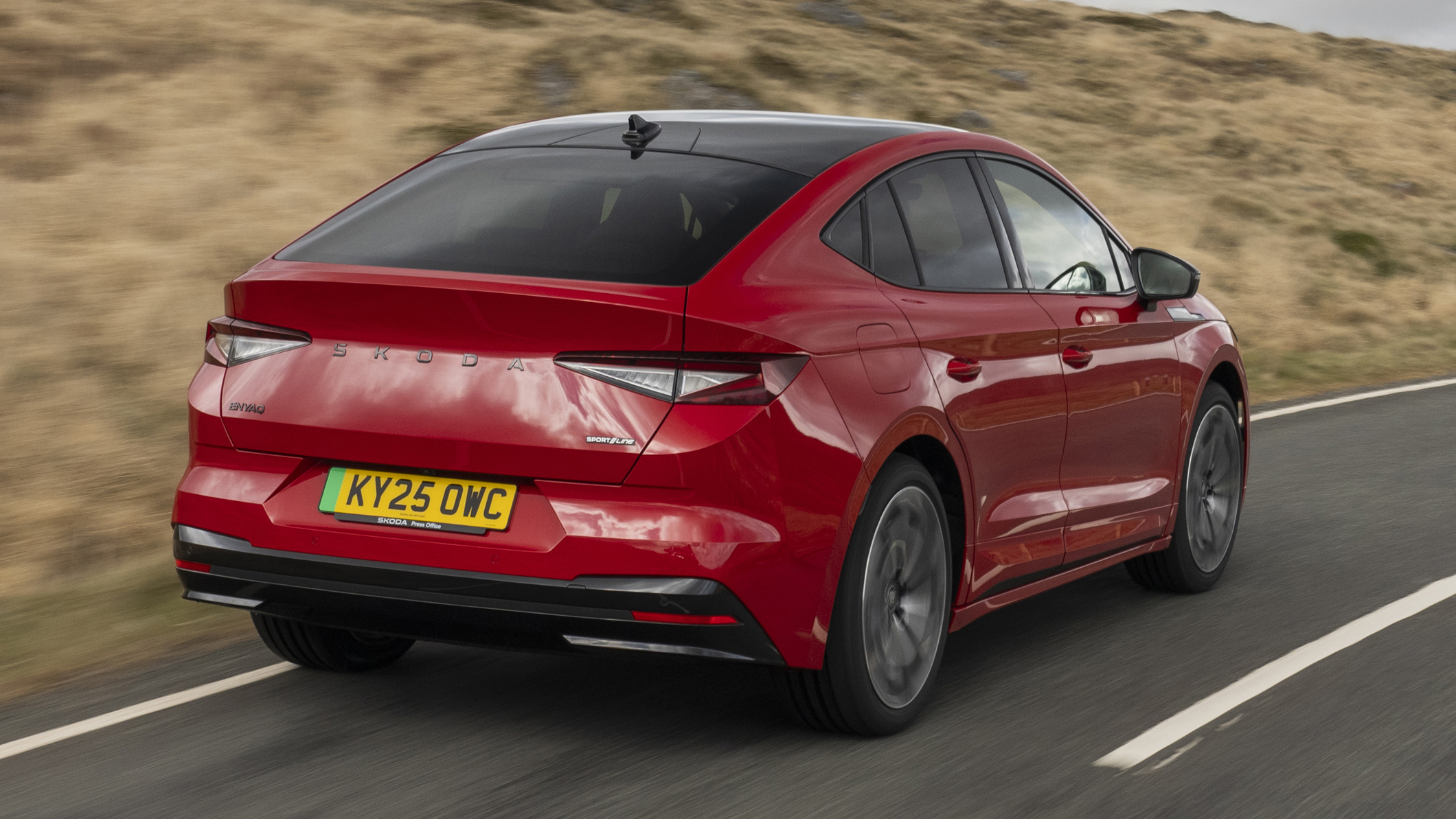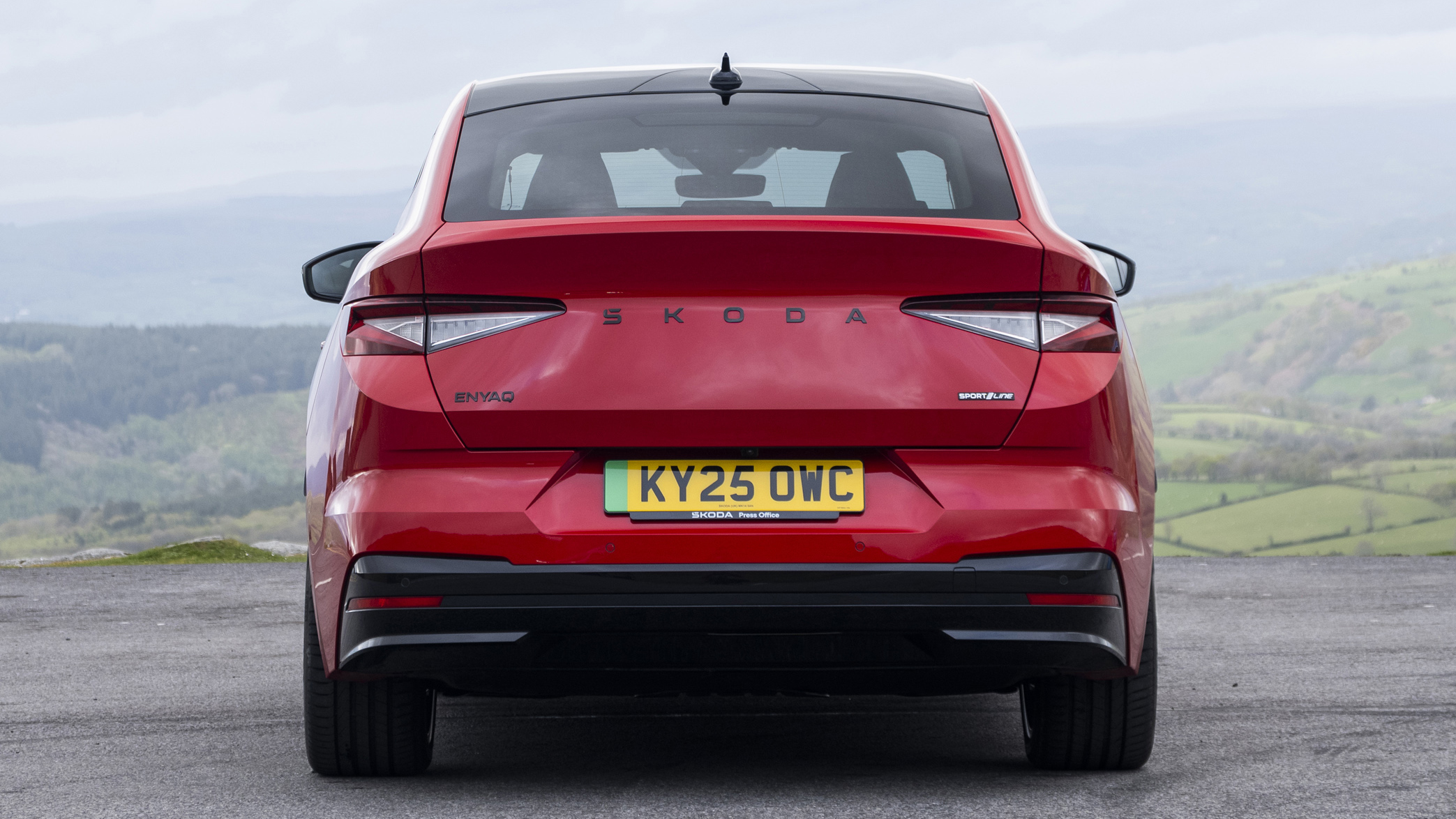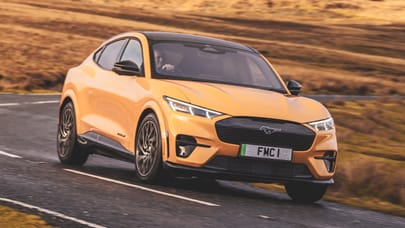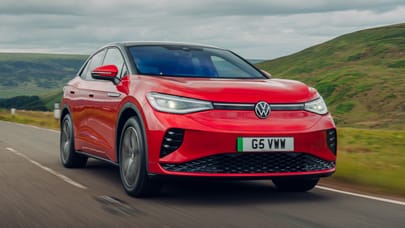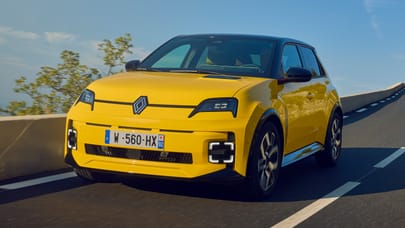
Good stuff
Eye-catching looks, competent all-rounder, outshines its VW Group rivals
Bad stuff
Style over substance, firm ride, the SUV is just better
Overview
What is it?
You'll certainly know the Skoda Enyaq by now, the Czech electric SUV with five seats and a lot going for it. Well, this is that but with a coupe-style body shape, as seems to be all the rage these days. For reasons mostly beyond our understanding, they very rarely look better (and are less practical) than the standard versions. Anyway...
The normal version of the Enyaq SUV has impressed us overall as an accessible electric option, especially next to its VW Group cousins, the Volkswagen ID.4 and Audi Q4 e-tron (and similarly coupeified Volkswagen ID.5 and Audi Q4 e-tron Sportback), so it stands to reason that this one will too.
That car arrived back in 2020, with this Coupe joining it a couple of years later. Come 2025 and both have been treated to a mid-life facelift, complete with a new suit (as debuted on the mid-sized Elroq), improved aerodynamics, more range and faster charging. All of which are big green flags in EV world.
Remind me of my options...
Where the regular-shaped Enyaq comes in four flavours, the Coupe leapfrogs the smaller battery so your entry point is the 85 Edition. That's followed by the 85x Sportline, and finally the vRS.
The 85 gets a 77kWh battery and a single motor, rear-wheel drive setup, the 85x adds another motor for all-wheel drive, and the vRS gets a slightly bigger 79kWh battery plus dual motors/all-wheel drive.
Both the 85 and 85x get 282bhp and smash through 0–62mph in 6.7 seconds, while the vRS ups that to 335bhp and rips through the same sprint in an impressive 5.4s. Top speed's 112mph.
The more pertinent figure here though is the range, with the Enyaq Coupe’s new face leading to a drag coefficient of just 0.229, compared to the 0.240Cd before. That means claimed range is up to 365 miles in the 85, 334 miles in the 85x, and 348 miles for the vRS.
It’d also be remiss of us here not to mention charging speeds: the 85 can accept 135kW, whereas the 85x peaks at 175kW. Either way you’re looking at just under half an hour to charge from 10–80 per cent. And on public chargers capable of those speeds, a hefty bill too…
What's it like to drive?
We've only driven the facelifted rear-drive entry model so far. It all feels pretty conventional and doesn’t spring many surprises, with its nicely weighted steering, smooth acceleration, and generally pleasing road manners. Our only complaint really is the slightly firm ride.
We have, however, driven the all-wheel drive Enyaq SUV, and the only real benefit of that extra motor is slightly better torque and traction. Otherwise it's no quicker or more powerful, and it'll cost you some 30 miles in range plus a little extra dosh. Yeah, we’re not sure it’s worth it either.
Then there’s the vRS, which in pre-facelift form we found wholly unsatisfying. It severely lacked engagement and other than straight line acceleration, it offered precious little reward... maybe the facelift will fix that.
Has practicality been massively affected?
Skoda says that bootspace is only a squeak smaller here, with 15 litres less of it compared to the regular SUV (570 litres versus 585). Likewise headroom in the back seats is only marginally reduced by the sloping roofline thanks to a panoramic glass roof as standard. As a clue to the lengths that Skoda has gone to be able to say that, the glass is thinner and they had to junk the blind that normally comes with the pano roof, so it’s been specially treated to reflect heat.
Otherwise it’s standard Enyaq, with Skoda having gone about the deranged VW Group craze for ridding cabins of buttons in a much more restrained way. It’s not perfect, but it’s far better than the ID.5. Read more over on the Interior tab.
How much does it cost?
Prices start from £46,200 for the entry-level RWD Enyaq Coupe, rising to £50,650 for the cheapest car with 4WD and £53,560 for the vRS. Head over to the Buying tab for the full lowdown.
Our choice from the range

What's the verdict?
We like the Skoda Enyaq, and post-facelift this is an even better electric family car than it was before. Sharper suit, increased range, and all achieved while retaining that appealing price tag. Tick, tick and tick.
But the Coupe still doesn’t really have anything to recommend it over the SUV. That’s not to say it’s a bad car, but as a coupeified crossover it sacrifices a little headroom and bootspace in favour of... style. And then demands a premium for the privilege. One that's worth, what, a couple of miles extra range? Hardly.
Yep, it's a plain white t-shirt with a designer logo on it. Do yourself a favour and stick with the supermarket own brand SUV...
The Rivals
Trending this week
- Car Review
BMW 3 Series
- Top Gear Advice
Top Gear's big fat guide to buying a used BMW 3 Series




